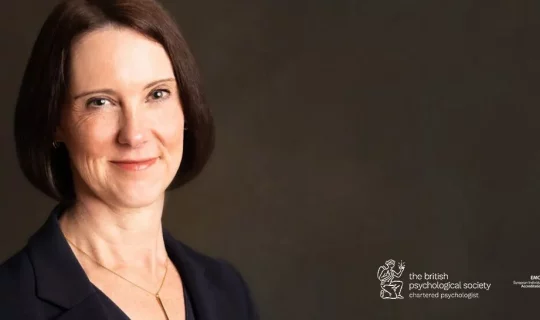queSTIONING SEQUENCES
iN Coaching
»QueSCo«
Questions are a core intervention in helping professions such as psychotherapy or coaching. Our project investigated questioning practices in business coaching. Coaching builds on the interaction between coach and client, addresses clients’ work-related problems and aims to facilitate clients’ change. Although coaching is becoming more and more important in the western world, its academic foundation is still underdeveloped. The analysis of questioning sequences,
considered as a crucial intervention, thus addresses a principal research gap.
The aim of our project was the development of a coaching-specific typology of questioning sequences and to investigate their coaching-specific change potentials. The project used a mixed-methods research design, which combined qualitative linguistic and qualitative/quantitative psychological methods. The data consisted of authentic, video-taped, and linguistically transcribed coaching processes from systemic solution-oriented business coaching. By drawing on German, Austrian, and Swiss data, the project covered the entire German-speaking coaching market.
Our international and interdisciplinary “DACH” research project “Questioning Sequences in Coaching” (QueSCo) was funded for a duration of 36 months (March 2021-February 2024) with a total amount of 900,000 EUR by the national funding organizations from Austria (FWF, Lead Agency, I 4990-G), Germany (DFG, 447538923), and Switzerland (SNF,100019E_194162 ). It was based at the English Department of the University of Klagenfurt, the Leibniz-Institute for the German Language in Mannheim, and the Department of Applied Psychology at the Zurich University of Applied Sciences. The project was headed by Assoz. Prof. Dr. Eva-Maria Graf.
Major Project outcomes and results
The QueSCo Corpus
Following Graf’s (2019) (first, now second largest) coaching corpus of Emotional Intelligent Coaching data, QueSCo has collected the largest corpus of systemic, solution-oriented (online and face-to-face) business coaching interactions: Overall, 14 coaches and 24 clients participated. The entire data amounts to 24 processes, 116 sessions (57 FtF and 59 online sessions) and a total length of 149 hours. About 90.5 hours (i.e., 66 sessions) have already been transcribed according to (minimal) cGAT conventions using FOLKER/EXMERaLDA. For the coding, 14 processes (12 coaches and 14 clients) / 50 sessions that amount to 60.5 hours of interaction data were used.
The QueSCo Typology of Question Types
A typology of coaching-specific questions (1st position / “target action”) was developed primarily by the linguistic team (in Klagenfurt and Mannheim) via in-depth (re-)analyses of the authentic coaching data. In collaboration with the psychologists, 12 coaching-specific question types attributed to 7 main functions were identified.
The QueSCo Typology of Questioning Sequences
The typology of coaching-specific questions (1st position) was expanded to include categories for the following sequence positions: possible client reactions (2nd position), coaches’ reactions (3rd position), as well as prior actions (positions -2 and -1) to questions. Additionally, evaluation criteria were defined to assess the local effectiveness of questioning sequences. The third positions and sequence evaluations were carved out from both a linguistic and a psychological perspective.
The QueSCoM Manual
The QueSCoM coding manual was developed to operationalize the two typologies and code the entire corpus of 14 processes in MAXQDA (a software for qualitative analysis) after an Interrater-Reliability of κ ≥ 0.7 had been reached. The master code consisted of 121 (sub-)codes and, overall, 87,237 codes were assigned.
Main Results
In the entire coded corpus, 3,023 questioning sequences including 3,691 questions have been identified. They make up 83% of the entire coded transcripts, which attests to the centrality of questions in coaching.
Questions (1st position): Wh-questions make up the most frequent question (grammatical) form (1,629), followed by declarative questions (996) and polar interrogative questions (792), i.e., both open and closed questions play a role in coaching. The most frequent question types are “questions topicalizing problematicity” (24%), “questions managing the (working) relationship” (21%) and “questions topicalizing resources” (18%). Overall, solution-oriented questions make up 41% of the questions, problem-oriented questions make up 26%, which showcases the solution-orientation of the interaction. Question types that most often initiate phases are “questions topicalizing problematicity”, “questions managing the (working) relationship”, “questions topicalizing client motivation and/or goal” and “questions evaluating interim results”.
Reaction/Answer (2nd position): Client reactions to all question types are mostly responsive. The reaction types “client does more (responsive)” (i.e., the client provides an answer as well as additionally relevant information) and “client participates” (i.e., the client provides an appropriate answer to the question) together make up 73% (44% and 29% respectively) of client reactions. Such a result attests to the coaching clients’ overall willingness to participate in the coaching process and to actively work towards transformation and change.
Coaches’ Reactions (3rd position): Particular attention was also paid to the third sequence position, i.e., to coaches’ reactions in response to clients’ reactions/answers. The most frequent (descriptive) linguistic category here is “request for clarification or elaboration” (48%), which means coaches most often use the third position to address unclear aspects of the client’s response or to elicit more information. This is followed by “transformation” (15%) by which coaches initiate a decisive change in perspective in relation to the client’s response, e.g., from problem- to solution-orientation (see figure 2). From a psychological perspective (which considers topic, affect and relationship management in 3rd position), coaches are highly responsive and attuned to their clients.
Sequence evaluation: According to the linguistic definition of local effectiveness (i.e., fulfilment of the questioning sequence): 46% of sequences are fulfilled, i.e., successfully completed, 35% are extended, and only 19% are not fulfilled. From a psychological perspective, which evaluated sequences according to a 5-point scale, 52,3% of sequences received 5 points, 31,7% had 4 points, and 16% received 3 points or less. This high percentage of successful sequences points to an overall (local) effectiveness of questioning sequences in coaching, which is both based on clients’ as well as coaches’ responsiveness.
Project Description
Information for Coaches
Project Team
Activities
Board of Experts
Contact
Latest News / Our Project Blog








